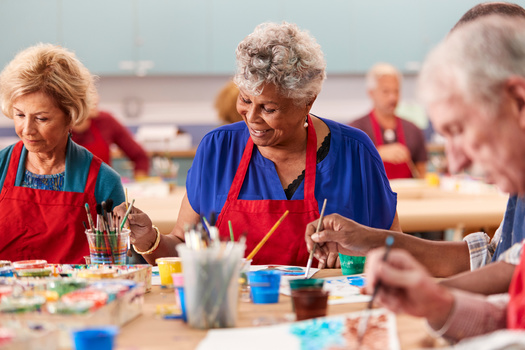
An Atlanta-based group is making sure more people have access to an unconventional but effective treatment for their moderate mental health challenges: art.
It is estimated 1.8 million adults in Georgia live with some form of mental illness. The group Art Pharmacy partners with health care providers and community organizations to integrate creative activities into treatment plans.
Chris Appleton, founder and CEO of Art Pharmacy, said the approach, known as “social prescribing,” connects people to arts and cultural experiences as a way to combat the mental health crisis and loneliness epidemic in the U.S.
“People get prescriptions to go to dance classes,” Appleton outlined. “People get prescriptions to go on a guided tour at a museum. People get prescriptions to go to a ceramics workshop, or maybe a visit to your local botanical gardens.”
In Georgia, Art Pharmacy partners with school-based behavioral health clinics to support young people struggling with anxiety and depression. It is also working with Medicaid health plans to assist at-risk youth with serious emotional disturbances, and helping older adults at risk of social isolation.
Appleton stressed Art Pharmacy is not meant to replace psychotherapy, especially for those who need psychiatric care, but it is another option for those with mild to moderate concerns. He added through care navigators, people are connected to creative activities that keep them engaged in treatment, offering a different path to improving their mental well-being while reducing stigma.
“There’s an acknowledgment that new forms of care are required to make progress on these struggles,” Appleton asserted. “I think a second piece is that while stigma around mental health has improved in the U.S. over the past several years — especially among younger generations — many people still struggle to raise their hand and say, ‘I need help.’”
He added Art Pharmacy keeps track of progress using mental health and well-being assessments. While there are challenges in making social prescribing a standard part of health care, he believes it is only a matter of time before the approach becomes a go-to option alongside traditional treatments.
get more stories like this via email
